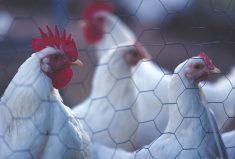French farmers vowed to blockade the Paris region ahead of a Feb. 1 European summit, and as of Jan. 31, more than 100 roads were blocked and 10,000 people were demonstrating across the country, according to the French interior ministry.
Prime Minister Gabriel Attal attempted to quell the unrest by granting emergency subsidies for organic farmers, cattle farmers hit by epizootic hemorrhagic disease and bad weather, and suspending a tax hike on tractor fuel.
To the trade unions steering the protests, it was too little, too late.
Read Also

Farm equipment market unlikely to pick up
North America’s farm machinery sales have been slow and uncertain thanks to tariffs and trade disruption. There’s not a lot of hope for change in 2026.
The demonstrations have been in the making for some time and the uproar isn’t unique to France. Since 2022, farmers in the Netherlands, Germany, Italy, Poland, Romania and Lithuania have been setting up shop outside government quarters and camping tractors on main roads.
Buoyed by the actions of their French peers across the border, Belgian farmers also blocked the roads to Zeebrugge port on Jan. 30.
While these movements are not new, they are becoming increasingly confrontational.
French farmers know they largely have the public’s support, and it’s relatively easy for them to gain the attention of politicians and the media. However, past examples show such movements can be quickly forgotten once the heat of the protest is past.
Whatever farmers grow in France and however they do it, they have to juggle an increasing number of competing demands: feeding France, caring for the environment and complying with ever more burdensome regulatory standards, all while staying financially solvent as they cope with frost, floods, animal disease and drought.
Many farmers believe current economic conditions make it impossible to reconcile the demands of sustainability and development and also be able to pass their farms on to the next generation.
Since 2019, we have been researching how 42 farmers from the Centre–Val de Loire region of France navigate these tensions.
We found that such political movements provide them with an important outlet, allowing them to express the anger they feel. Uniting with others in similar situations allows them to break free from feelings of isolation. They also allow farmers to define for themselves what a viable agricultural model for all would look like.
For politicians and the public, such protests provide an opportunity to show attachment to the farming world as well as a certain rural ideal.
If anything is to come out from these protests, politicians and citizens will need to play their part in facing up to their own contradictions. A November 2023 survey found that the French are asking for more financial support from the public authorities (56 per cent), but there is still a high proportion in favour (25 per cent) of maintaining aid to farmers as it is.
So what is to be done? It could be a matter of empowering farmers in the face of supermarkets and retailers pushing for cutthroat prices. It could also be a matter of consumers consuming locally and at the right price, and accepting a countryside in which farming is a profession and not just an aesthetic.
And it might also be a question of providing greater support for research and development to ease the agro-ecological transition.
–This story is part of a longer article first published by the the Conversation, by Reuters, and has been edited for length.















